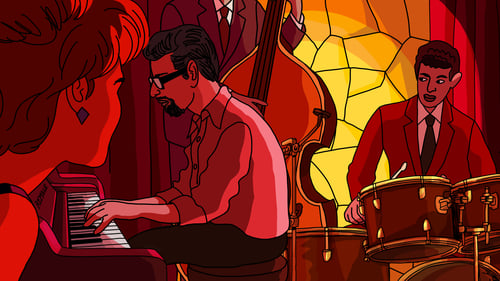
Self (voice)
New York, 2010. Jeff Harris, a music journalist, sets out to uncover the truth about Francisco Tenório Júnior, a young Brazilian samba-jazz pianist who disappeared in Buenos Aires on March 18, 1976.

Self
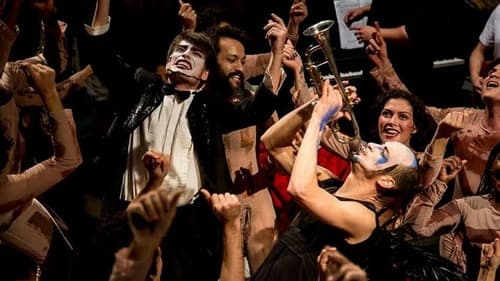
Self
In six decades, Teatro Oficina has done more than revolutionize theatrical language in the country: the aesthetic influence of José Celso Martinez Corrêa's company extends from Tropicalism to the renewal of Brazilian audiovisual languages from the 1960s onwards. The film revisits a story that it involves personalities such as Caetano Veloso, Glauber Rocha, Lina Bo Bardi, Chico Buarque and Zé do Caixão, brings together scenic art, ecology, architecture and sexuality, and mixes art and life in the search for a Brazilian based language.
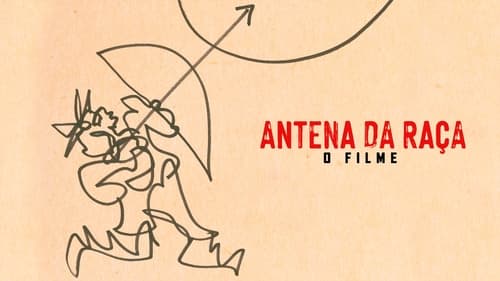
Self
The film comes to appropriate and re-discuss the Brazilian reality, based on the dialogues, excerpts and scenes from Glauber Rocha visceral films and his desire to "remove the masks", from ou third world saga. In this scenario where love and violence coexist in a state of inequality and often abandonment.
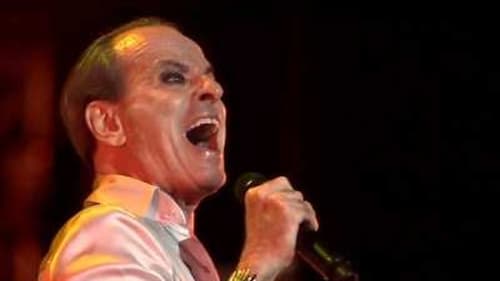
Self
The impact of Ney Matogrosso's performances on his audience and the reverberation of that impact on Brazilian culture, from the second half of the 20th century to the present. An audiovisual anthology, all composed of archival images. The best way to get to know Ney is to be with him on stage.

Music
On March 16, 2020, in Brasília, an anonymous and unknown Haitian challenged the head of the nation: “Bolsonaro, it’s over. You are not president anymore.” This film poem counterpoints this situation with two military operations of Minustah (United Nations Stabilization Mission in Haiti), commanded by Brazil, on july 6, 2005, and december 22, 2006, in Cité Soleil.
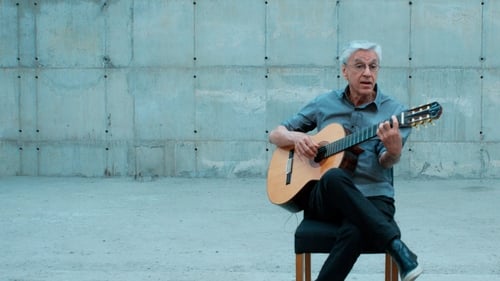
Self
Brazilian singer-songwriter Caetano Veloso reflects on his imprisonment in 1968, during the military dictatorship.

Self

Self

Self
Amid the dunes and landscapes of the Lençóis Maranhenses National Park, singer and composer Orlando Morais remembers his trajectory, while receiving international and Brazilian artists, such as Caetano Veloso and Huong Thanh, and mixing different musical genres.

Self
The art of Arrigo Barnabé, one of the pillars of the São Paulo experimental music scene during the 80's and author of critically acclaimed albums such as "Clara Crocodilo" (1980) and "Tubarões Voadores" (1984).
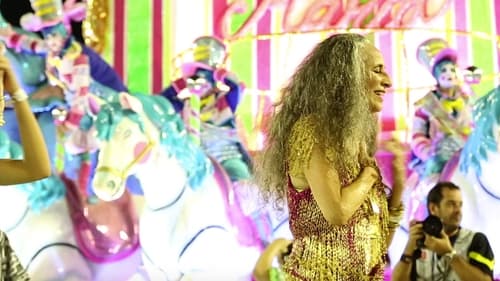
Self
A record on Brazilian samba school Estação Primeira de Mangueira's victory on the 2016 carnaval parade. Mangueira's parade that year was a homage to singer Maria Bethânia. The documentary also follows Bethânia on the celebrations of Our Lady of Purification, in Bahia, northeast of Brazil.

Self
This documentary is about the artistic trajectory of Edvaldo Souza, aka Edy star, the flamboyant gay singer, actor, dancer, theatrical producer, performer, visual artist and the last of the Kavernistas alive. The script mixes the memories of artists, friends and Edy himself, meeting in a studio with the singer and composer Zeca Baleiro.
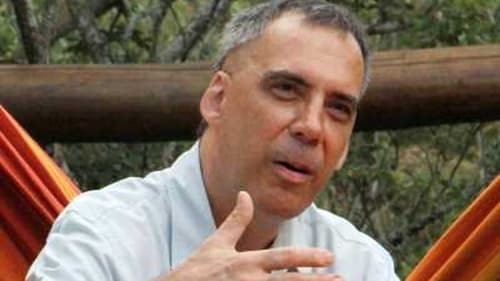
Self
From his origins as a poet to his success as a singer and composer, Arnaldo Antunes revisits the most remarkable moments of his career.

Self
Dorival Caymmi was one of the inventors of the Bahian imagination. In his 94 years of life, Caymmi composed, sang, wrote, illustrated and thought about his Bahia, even far from it. His family, partners, friends and fans remember his history, which made him one of the pillars of Brazilian culture.
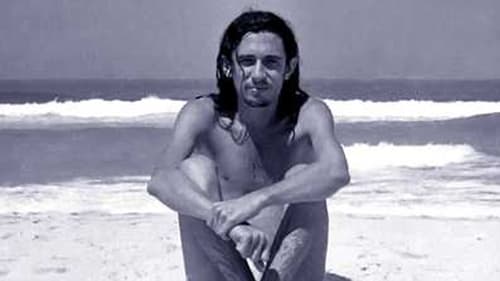
Self
The story of Brazilian poet Torquato Neto, who lived passionately through fracturous times and worked in several fields, including music, journalism, and cinema. He was an active participant in the revolution of Tropicália and marginal art, which changed the course of Brazilian culture in the 1960s and 1970s, until he committed suicide on his 28th birthday.

Self
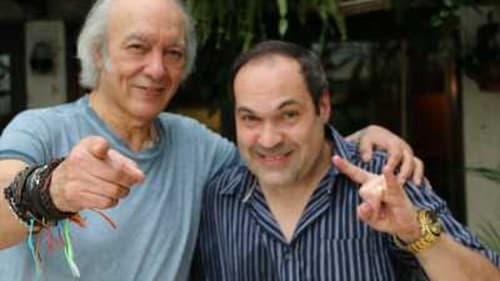
Self
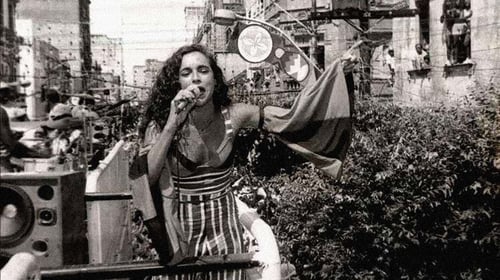
Self - Cantor e Compositor
Originally from Bahia and considered today one of the most globalised musical movements in the world, Axé is a musical rhythm that carries in its essence a good part of all the musical and cultural syncretism of Bahia. The documentary brings together interviews and archive images outlining the birth of Axé.
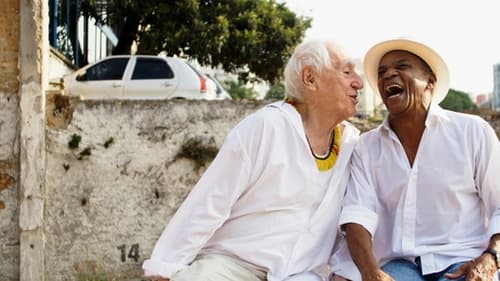
Self
This documentary investigates the aesthetic, political and existential trajectory of emblematic Black Brazilian actor Antônio Pitanga. He career spans over five decades, and he has worked with iconic Brazilian filmmakers Glauber Rocha, Cacá Diegues and Walter Lima Jr. He was a prominent figurehead and outspoken activist during the Brazilian dictatorship, a period of unrest in Brazilian cinema. Pitanga deep dives into the world of Antônio and the history of Brazil. The documentary was directed by his daughter Camila Pitanga, one of widely recognised faces in Brazilian television and cinema right now. The film is also a poem, and a tender ode to fatherhood.

Self

Self

Self
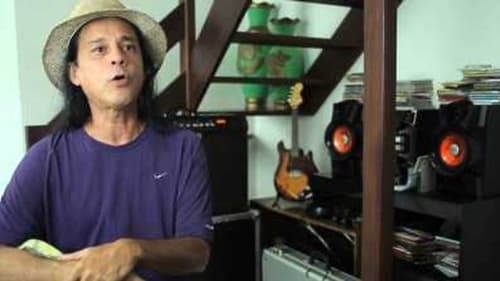
Self

Self
Rogério Duarte is one of the most important names in Tropicália, a Brazilian cultural movement of the 1960s. The plastic artist was one of the first to publicly denounce the tortures committed in the military regime. During the dictatorship, its political action and its cultural achievements mobilized many artists and inspired a whole generation.

Self

Self
Two of the biggest names in 20th century pop music together on stage, accompanied by their guitars. In "Two Friends, A Century of Music", Caetano Veloso and Gilberto Gil celebrate their 50 years of career by retaking the partnership on stage. In simple and intimate arrangements, Gil and Caetano celebrate brilliant trajectories that began in the same place: Bahia. It was from the friendship that began at the time that they were students, that the two singers and composers gave origin to a partnership that, years later, would base one of the most expressive movements of Brazilian art, Tropicália.

Self
Based on the autobiography of noted music executive André Midani, André Midani — An Insider’s Story of Brazilian Music (2015) explores Brazilian music throughout his five-decade career through informal gatherings and jam sessions at his home, featuring Caetano Veloso, Jorge Ben Jor, Gilberto Gil, and Marisa Monte, among other luminaries of the industry.
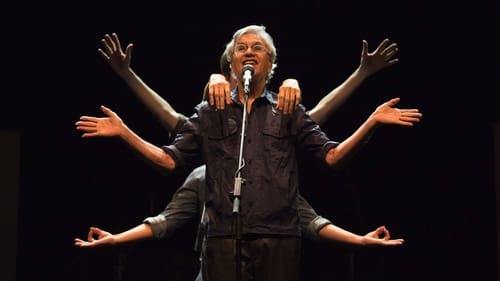
Self

Self
This documentary highlights the evolution of Brazil's Circo Voador venue from homespun artists' performance space to national cultural institution.

Director

Self
Set against the turbulent atmosphere of the 1960s, Tropicália is a feature length documentary exploring the Brazilian artistic movement known as Tropicália, and the struggle its artists endured to protect their right to freely express revolutionary thought against the traditional Brazilian music of that time.
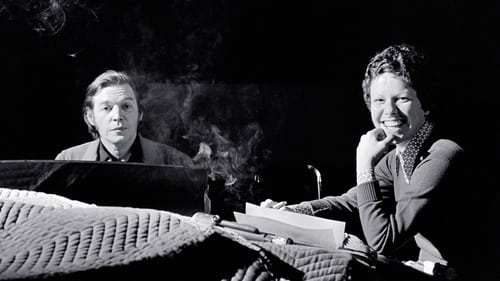
Self (archive footage)
Half a century ago, Brazilian composer and musician Antonio Carlos "Tom" Jobim (1927-1994) introduced bossa nova to a worldwide audience with "The Girl from Ipanema." This relaxed, cool, sensuous music blended jazz and samba. After recording an album of songs by his friend Jobim, Frank Sinatra is reported to have said, "I haven't sung so quietly since I had laryngitis." Naturally, "The Girl from Ipanema" and Frank Sinatra are featured in this musical collage of countless seamlessly edited excerpts of concert footage that cover decades of events all over the world: from Rio de Janeiro to Lisbon, Paris, Copenhagen, Jerusalem, Tokyo, Montreal, New York and back to Rio.

Self
The film follows the birth of Jorge Mautner up to his 17 years. He was born in Brazil shortly after his parents fled the Holocaust. Raised by a nanny who introduced him to Candomblé, Mautner became a precursor of the Tropicália, contributing to the construction of the identity of Brazilian music.
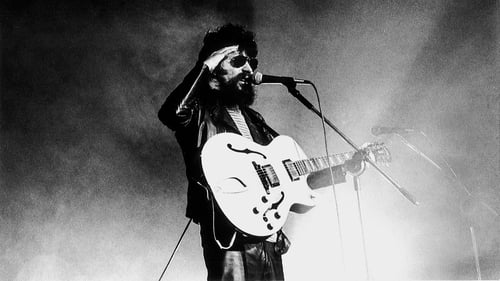
Self
As the world boiled in the rush of Easy Rider bikes, in the frenetic pace of Elvis Presley, in Beatniks poets, in the explosion of counterculture, a boy from Bahia gave birth to Rock in Brazil. A runaway flying saucer that abducted the hearts and minds of thousands of fans, Raul Seixas, a man who became a myth. Raul died young because he lived intensely. Rock n 'roll, free love, alternative society, drugs, black magic, military dictatorship, women and daughters. A man who wanted to live from his work and died for it. The beginning, the end and the middle are confused, because the story is not over. The film reveals through rare images of archive, meeting with relatives, conversations with artists, producers and friends, the trajectory of the legend of Rock.

Self
In his film Rua Aperana 52 Júlio Bressane describes the invention of a landscape, the topology of a corner of Rio de Janeiro. The film consists of a series of photographs taken between 1909 and 1955 by, among others, Bressane's parents at and around the address used as a title. These are interlarded with scenes from films made between 1957 and 2005, bringing the total fictional time the film covers to almost a century; one hundred years in which the winding road featured in almost every shot structures the new landscape behind the Aperana, which means 'wrong road'. Rua Aperana 52 is autobiographical, as it is a landscape from Bressane's youth, but it is also not so; it is more a multi-subjective mythology of a place seen through all those films and photographs. Bressane refers to his editing as an intuitive form of thinking aimed at evoking moods which make the viewer the new witness of the fictional landscape. A fiction about a fiction,

Self
The trajectory of the clumsy reporter Agamenon Mendes Pereira, always present in key events of history, his biggest scoops and his eternal love for Isaura, who survives his unexpected travels around the world, in search of news and fame.

Self
Year-end special brought together three interpreters of Brazilian popular music - Gilberto Gil, Caetano Veloso and Ivete Sangalo - to honour the Brazilian woman.

Self
The story of the young people from Brasília that, led by Renato Russo, after a long journey and many obstacles, sees their dream come true, with the success of their bands.

Self
Caetano Veloso, Gilberto Gil, Jards Macalé and Jorge Mautner recall important moments during the military dictatorship the befell in Brazil from 1964 to 1985. The film presents the events of the prison, life in exile and the return to the country.
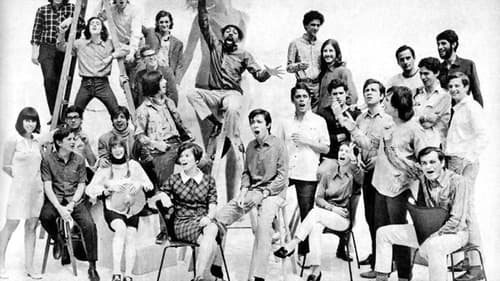
Self
If you thought TV shows in which audiences and juries judge musical acts were a relatively new phenomenon, you'd better think again. In the 1970s, such "festivals" were incredibly popular in Brazil. They were recorded before a live studio audience, and usually featured a number of elimination rounds. They also formed the springboard for the career of many a big-name star, such as Chico Buarque, Caetano Veloso, Roberto Carlos and Gilberto Gil. Appearing on such a program was no cakewalk, however: audiences could be as wild in their condemnation as in their appreciation of an artist. Extensive archive footage (including performances and behind-the-scenes interviews) from a turbulent final of the Festival of Brazilian Popular Music one evening in 1967 paints a fascinating picture, not only of the transformation of Brazilian music into real "festival" music, but also of a society starting to buck against the yoke of military rule.
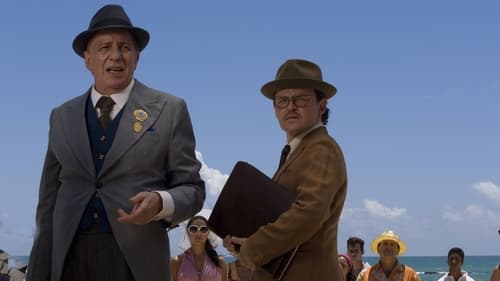
Original Music Composer
Based on the homonymous work of Dias Gomes , The Well Beloved tells the story of the mayor Paraguassu Odorico, whose primary goal in his administration in the city of Sucupira is the inauguration of a cemetery. One side is supported by the sisters Cajazeiras. On the other, he has to fight against strong opposition led by Vladmir, owner of rag city. For lack of a corpse, the mayor can never accomplish his goal. Not even the arrival of Ernesto - a dying man who does not die - and hiring Zeca Diabo, a bandit killer, provide him with the realization of his dream. Odorico gun situations for someone to die, but the first body to be buried in Sucupira may be the mayor himself, that the hunter becomes the hunted and goes from villain to martyr.

Self
This documentary from filmmaker Guto Barra takes you beyond the 1960s bossa nova hit "The Girl from Ipanema" to explore how samba, Brazilectro and other Brazilian music styles have long captivated audiences and influenced musicians around the world. Mixing archival footage, fresh performances and interviews with leaders in the global music scene, Barra examines why Brazil's music consistently transcends boundaries of time and musical taste.

Self
Wandering Heart intimately follows Caetano from São Paulo to New York and Japan, during the release of his first album recorded solely in English. It takes considerably more than a week-long series of shows at Carnegie Hall, accolades in the New York Times, or the admiration of friends like Pedro Almodóvar, David Byrne and Michelangelo Antonioni to make Caetano feel comfortable outside of Brazil.

Self (archive footage)
Loki brings the trajectory of Arnaldo Baptista from childhood, passing through the most successful phase as leader of the Mutantes, marriage to singer Rita Lee and then separation. He also goes through the depression that devastated his life after the group ended and that led him to attempt suicide, his solo career, rapprochement with his brother and member of the Mutantes, Sérgio Dias, culminating in the band's return in 2006.

Original Music Composer
During a remake of the play Tristan and Isolde, actors Peter and Ana fall in love. While the characters live an idealized love, the interpreters are living a true story, which they try to spice it up with the intensity of the fiction.

Self
Documentary about Brazilian poet Waly Salomão, for whom life was always a fictional film and poetry was a way to expose any naturalistic pretension. His convictions affected many friends like Antonio Cícero, Caetano Veloso and the film's director Carlos Nader, who shoot Waly for 15 years. But how does one do a documentary about someone who believes everything is fiction?

Self
Extras from the remastered DVD of the film São Bernardo by Leon Hirszman. The process of restoring the film, with testimonials from actors and the film's technical team.

interpreta Moça

Self
A host of personalities reminisce about the life and work of songwriter, lawyer, and congressman Humberto Teixeira — aka "Baião Doctor" — the author of such classic Brazilian popular songs as "Asa Branca". A musical film about the baião, a movement in Brazilian music in the 1940s and 1950s that was later snowed under by samba and bossa nova.

Self

Self
Brazilian singer Rita Lee narrates moments about her life, from her childhood to the meeting with Roberto de Carvalho. The documentary is permeated with excerpts from the singer's concerts, with songs sung entirely.
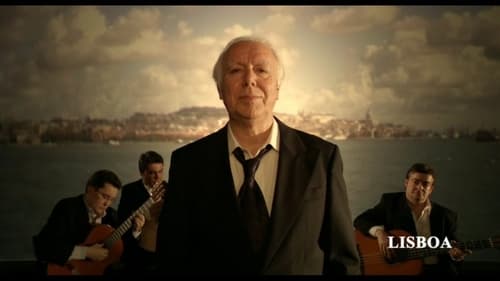
Self
A drama steeped in Portugal's Fado music culture.

Self
A tribute documentary on Fernando Ramos da Silva, the famous child star of the acclaimed film by Hector Babenco, "Pixote, a Lei do Mais Fraco" (1981). 20 years after his assassination by the police, his co-stars and Babenco talk about Fernando's contributions to the film, his troubled life when his acting works didn't took off as expected (since he was typecast) and which made him turn back to his past life of poverty and crimes. The project also presents that film's influence to many directors and artists around the world.

Self
A unique and intimate portrait of singer Maria Bethania, that starts at the artist’s 60th birthday, celebrated during a concert in El Salvador and a Mass in Santo Amaro, her hometown, in 2006. In the same house where she spent her childhood and adolescence, and beside her mother, Dona Canô, and brother Caetano Veloso, Maria Bethânia tells us her own story and about the tunes that followed her throughout her life.

Music
During the Carnival in the historical site of Pelourinho, Salvador da Bahia, we follow the lives of the tenants of a falling-to-pieces tenement house who try to get by using creativity, irony, humor, and music.

Self
Documentary about the 68-generation, told through the story of the newspaper “O Sol”, one of the first vehicles of the alternative Brazilian press, produced daily for six months, in the 1960s. The newspaper spoke of culture, politics and education through satires and prominent figures in the cultural scene of the time passed through him. Archive scenes and music from the period seek to reconstitute the spirit of the 68-generation. The film has the participation of personalities such as Ziraldo, Zuenir Ventura, Arnaldo Jabor, Chico Buarque, Caetano Veloso, Carlos Heitor Cony, Fernando Gabeira, Betty Faria, Hugo Carvana, among others.

Self
The life and work of one of the most controversial Brazilian musicians, having as its backdrop Tom Zé's 2005 European Tour. The documentary shows a detailed vision of Tom Zé's personal musical universe, in which a guitar and a vacuum cleaner have the same melodic importance. In intimate interviews, he narrates different parts of his life and tells us about his musical debut in the early 60s, his downfall during the 70s, and his 90s comeback.

Self
Afroreggae Cultural Group DVD containing a concert and a documentary about the group's social and cultural work at the favelas in Rio de Janeiro.

Self - Singer 'Poema dos Olhos da Amada'
To celebrate the life and the work of a multifaceted creator – playwright, poet, partner of the most important names of Brazilian pop music and, above all, an enlightened character of the Brazilian cultural history - director Miguel Faria Jr. gathered an incomparable cast of partners, singers, friends and rare images from the archives recalling Vinícius’ genial simplicity, with the spontaneity, the humor, and the freedom of a person chatting over a bar table, exactly how the eternal Vinícius would enjoy.

Self
Brazilian singer Maria Bethania has a 40-year singing career. A documentary shows her concerts and famous family.

Original Music Composer
The story of Francisco, a very simple and poor man whose dream was to see his children become country music stars, and who made all the efforts to make it happen.

Self (archive footage)
The biggest Brazilian historical festival of all time. The great cast of the 1973 Phonogram (now Universal Music) meets in three nights to protest against the curtailment of freedom of expression in those dark years of the dictatorship. With the images rescued in 2005, revealing exciting moments, containing the incredible presentations, it brings a team of all greatness and the opportunity to understand the path that Brazilian music has taken to the present day.

Music Director
Eder (Lázaro Ramos) is arrested after confessing the murder of a man. Duca (Darlan Cunha), a 15 years old boy who is Eder's nephew, wants to prove the innocence of his uncle, he's sure that his uncle confessed the crime to protect his girlfriend, Soraya (Deborah Secco), ex-wife of the deceased. Duca also wants to win the heart of Isa (Sophia Reis), a classmate who seems more interested in his best friend, Kid (Renan Gioelli). To be able to prove his theory, Duca gets help from Isa and Kid.

Narrator
All the feature is given prestige to by the narration in Caetano Veloso's voice, that also signs one of the segments of the project. São Paulo is the largest city of the Southern Hemisphere, with an incessant dynamics of cultural mixtures, with immigrants of all the world and migrants of all parts of Brazil. The gathering of these peculiarities are seen through the 13 film directors's sensibilities and their segments.

Director
All the feature is given prestige to by the narration in Caetano Veloso's voice, that also signs one of the segments of the project. São Paulo is the largest city of the Southern Hemisphere, with an incessant dynamics of cultural mixtures, with immigrants of all the world and migrants of all parts of Brazil. The gathering of these peculiarities are seen through the 13 film directors's sensibilities and their segments.

Self

Self
O Baú do Raul é o mais novo título do Multishow ao Vivo - uma parceria do canal com a gravadora Som Livre e Kika Seixas. Gravado no último mês de agosto, na Fundição Progresso, tradicional templo do rock carioca, o show foi uma homenagem prestada pelos amigos ao legítimo ídolo do rock brasileiro, no ano em que completa 15 anos de sua morte. Baú do Raul - Multishow ao Vivo traz um registro deste momento inesquecível em CD e DVD, que chegarão às lojas em novembro. Toni Garrido, Baia, CPM22, Marcelo Nova, Rick Ferreira, Zelia Duncan, Pitty, B Negão , Marcelo D2, Gabriel O Pensador, Detonautas, Erika e os Autoramas, Lobão, Arnaldo Brandão, Raimundos, Pedro Luis e A Parede, Caetano Veloso, AfroReggae, Sandra de Sá, Nazi (Ira!) recriam os principais sucessos de Raul em uma perfeita mistura que vai do rock à MPB, passando por hip hop, reggae, e música eletrônica.

Self
A collage of newsreels, trailers, clips and other visionary and unseen fragments of sight and sound regarding the late plastic artist Helio Oititica.

Garçom
This beloved Brazilian parody of Shakespeare in Love tells the story of Miguel's relentless furiculite. For better or worse, it is his aim to conquer every single ass in the county, right up to the toughest of them all: the governor's.
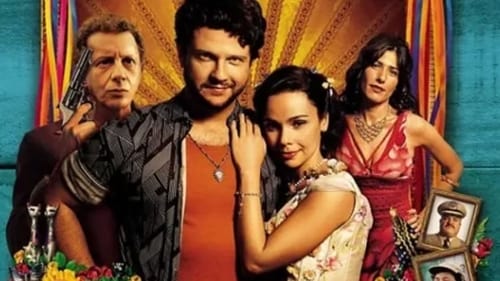
Music
Lisbela is a young woman who loves going to the movies. Leléu is a con man, going from town to town selling all sort of things and performing as master of ceremonies for some cheesy numbers, such as the woman who gets transformed into a gorilla. He gets involved with Linaura, a sexy and beautiful woman who happens to be the wife of the most frightening hitman of the place. The hitman finds out his wife's affair and goes after Leléu, who has to leave in a hurry. In another town, he meets and falls instantly in love with Lisbela, who is engaged to Douglas, a hillbilly who tries hard to pass for a cosmopolitan Rio de Janeiro dweller.

Self
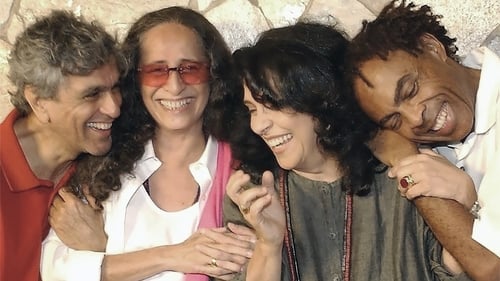
Self
Almost thirty years after the first reunion of Doces Bárbaros (four of Brazil's major popular music stars: Caetano Veloso, Gilberto Gil, Gal Costa and Maria Bethânia), the artists involved decided to get together again for limited concerts in São Paulo and Rio de Janeiro, in December 2002. The film documents the group's live performances, rehearsals and interviews.

Self
Life and legacy of Agostinho da Silva. Traversing the biographical journey, the life and work of the Luso-Brazilian philosopher, this work has testimonies from himself and various personalities of Portugal and Brazil that allow us to unravel his personality and multifaceted thought.
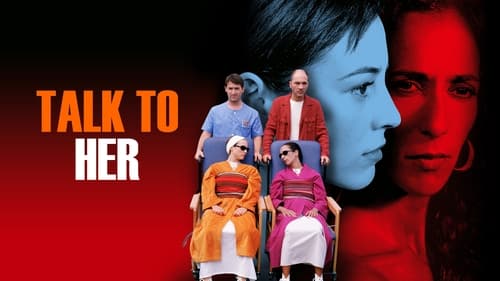
Singer at Party
Two men share an odd friendship while they care for two women who are both in deep comas.

Self
Documentary about amazing Brazilian musician Rogério Duprat, main orchestrator of Tropicália, his rehearsals with Gal Costa, Os Mutantes, Gilberto Gil and Caetano Veloso. There's also the first performance of his 1958 "5 Pieces for a Solo Cello" and pieces of the only recording of "Organismo", serial work inspired by a Décio Pignatari's poem.

Self
Registro ao vivo da turnê de Noites do Norte, este DVD traz o cantor e compostor baiano em sua melhor forma. Sucessos de carreira como Trem das Cores e Cajuína, as bossas Samba de Verão e Eu e a Brisa, músicas qua falam da realidade social como Haiti, a clássica Tropicália e hits pop como O Último Romântico e Como Uma Onda (ambas de Lulu Santos, que participa do álbum) fazem do Noites do Norte ao Vivo um lançamento imperfível para os fãs de MPB.

Self
Tempo Rei is the first audiovisual record of Gilberto Gil's vast work, celebrating the artist's thirty-year career, celebrated in 1996. Gil recalls his artistic trajectory, recalls striking facts and reveals some intimacies. Completely filmed on film, it includes great successes of the artist like Madalena, Cores Vivas, Vamos Fugir, Procissão and Expresso 2222.

Self
Documentary about samba musician from Bahia Clementino Rodrigues, aka Riachão.

Self
This is a journey of friendship, an Argentinian is going to rediscover his continent while searching for his friend from Bahia. And while the work, the records and the career of this great lady of Brazilian music are well known, the starting point, the training, the first years remained till now in a vaguely legendary and imprecise blur. Thanks to many investigations that concern as many places as times, thanks to journeys back in time through the towns and regions, the film seeks the origins of Maria Bethânia’s voice and style. Helped and led by Bethânia herself, with the assistance of Caetano Veloso and Chico Buarque, the two princes of Brazilian music, along with the complicity of the great Gilberto Gil, the author is allowed to go to the first context : the North-East. In the family home in Santo Amaro, the film finally touches the childhood of Maria Bethânia – and her brother Caetano, and this mysterious point – from which the music radiates.

Self
Tribute Concert from Pavarotti and Friends
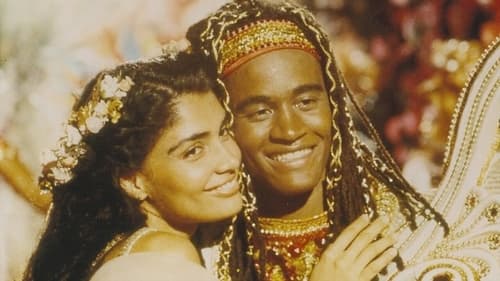
Music
Orfeu is a popular composer from a samba school. He lives in the favela and falls madly in love when he meets Euridice, a newcomer to the neighborhood. But the local drug boss Lucinho stands between them and will drastically change both their lives.

Cantor
Orfeu is a popular composer from a samba school. He lives in the favela and falls madly in love when he meets Euridice, a newcomer to the neighborhood. But the local drug boss Lucinho stands between them and will drastically change both their lives.

Self
Between August 23 and 31, 1983, at the "Circo Massimo", in Rome, there was a musical event that brought together artists from Bahia. This film brings a recording of the event, also featuring backstage, rehearsals, testimonies and some relaxing moments of these great names in Bahia's music.

Original Music Composer
Just when her family starts believing that she is dead, and that they can expect a rich heritage, Tieta returns from São Paulo to her native village in Bahia, which she had been forced to leave long ago because of some involvement with a goat herd. Believed to be fabulously rich - and nobody knows how - she brings to the great disappointment of her family a young step-daughter and heir. With the arrival of Tieta turmoil enters into the life of her family and their fellow villagers. Most particularly into the life of her nephew - promised to the Church - and the young aspiring mayor.

Lamartine Babo
The history of Brazilian popular music in the 20th Century, focusing specially on the life and works of intriguing singer Mário Reis, a loner who, with his special way of singing - whispering and softly saying the words - in a time when singers with potent voices ruled, was in a way a forerunner of Bossa Nova style.

Original Music Composer
The story of two immigrant couples: Teresa and Angelo; Pierina and Massimo. While fighting for survival in the new world, the unexpected love of Massimo and Teresa appears. They react against family and cultural traditions and leave to a new destiny, leaving their partners. Quatrilho is the name of a card game in wich the player have to betray his partner in order to become the champion.

Music
Four love stories which portray a wide gamut of emotions and desires against the backdrop of Rio de Janeiro. "Elephant's Stomp" : the story of a highway patrol officer who is infatuated with a mulatto dancer at a local nightclub. "Drao" : a publicity man and a boutique owner who face a crises in their marriage. "You Are Beautiful" : two homeless teenagers seek love amidst their personal misery. "Samba of the Great Passion" : a book maker who is charmed and captivated by the voice of a female singer coming from a building across the street. Characters in search of love in order to escape from the boredom, loneliness and helplessness of their lives.

Music
A young man who has just experienced a breakup makes a variety of encounters throughout a day.

Self
A documentary chronicling the life and works of Brazilian poet, songwriter, journalist and avant-garde filmmaker Torquato Neto, from his beginnings to his suicide at the age of 28.

Self

Based upon the life story of Father Antonio Vieira, born in Lisbon in 1608 and deceased in Salvador, Bahia, in 1697. He's considered the first Brazilian writer and one of the most important aesthete of linguistic and of the Portuguese language of all times, a master in the art of metaphor, of verbal relations and analogy. He was persecuted and condemned by the Portuguese Court of Inquisition due to his position against native slavery, against the intolerance to the Jewish people and to the colonial politics of exploration.
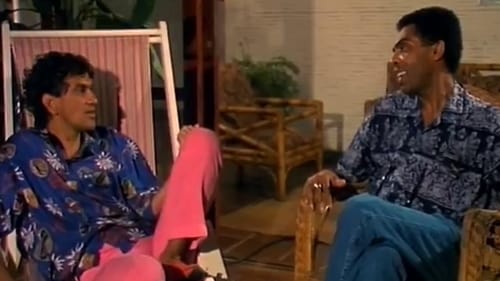
Self
Gilberto Gil talks with friends and share his thoughts, influences and reveal his impact on brazilian music and vision of the black people.
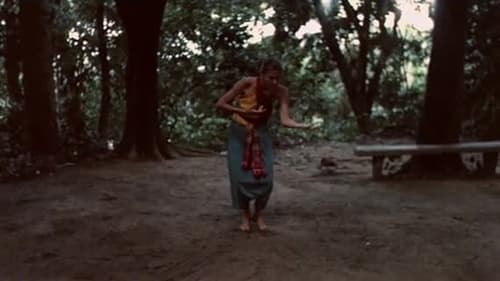
Music Director
A fragmented style, patchwork of interviews with Caetano Veloso's friends, mixed with conversations, thoughts, scenes of dance and literature excerpts.

Producer
A fragmented style, patchwork of interviews with Caetano Veloso's friends, mixed with conversations, thoughts, scenes of dance and literature excerpts.

Writer
A fragmented style, patchwork of interviews with Caetano Veloso's friends, mixed with conversations, thoughts, scenes of dance and literature excerpts.

Self / Singer "Língua"
A fragmented style, patchwork of interviews with Caetano Veloso's friends, mixed with conversations, thoughts, scenes of dance and literature excerpts.

Director
A fragmented style, patchwork of interviews with Caetano Veloso's friends, mixed with conversations, thoughts, scenes of dance and literature excerpts.

Self
A documentary on Brazilian poet and composer Vinicius de Moraes, made by his daughter a few months before his death.

University teacher investigates the life of a famous Brazilian musician, trying to discover the secret of mass communication through his songs and performances, while ultimately falling in love with one of his groupies.

Lamartine Babo
The fictional encounter in Rio de Janeiro, Brazil (in the 30s) between popular songwriter Lamartine Babo and inconoclast poet and playwright Oswald de Andrade.

Self
A group of eleven women organize a soccer team, as a manifesto against sexism.
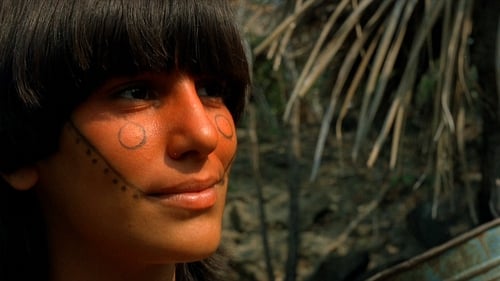
Music
A military man picks up a Native Brazilian woman and heads to a gold panning site where he has undisclosed business to attend to.

Filming of the historical montage of Oswald de Andrade's play, where decadent millionaires, depraved children, corrupt and implacable capitalists are the characters interpreted by the Grupo Oficina, in a celebrated theatrical performance from 1967, fundamentally recorded in 1971 and released only in the 1980s.
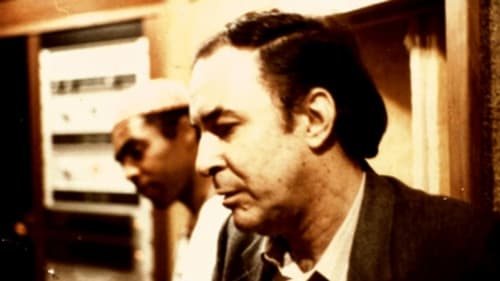
Self
João Gilberto receives Caetano Veloso, Gilberto Gil and Maria Bethânia during the recording of his album Brasil.
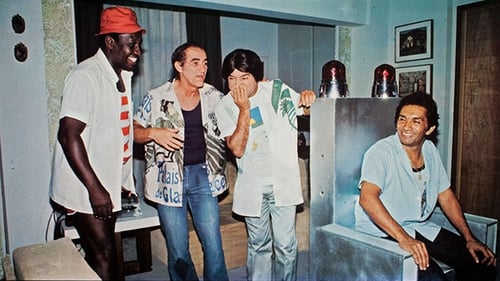
Self
Compilation of some of the best moments in the career of Brazilian comedy group "Os Trapalhões", with scenes from their previous films, also telling the story of each individual artist.

Self
The life and work of Brazilian singer-songwriter, guitarist, composer, playwright, writer and poet Chico Buarque de Hollanda.

Self

Self
An experimental film on Brazilian avant-garde artist Helio Oiticica and his works, especially the Parangolés.

Original Music Composer
Solange is a recently married young woman whose wedding night did not end well. After constant fights with her husband, she decides to live through her sexual frustration by sleeping with strangers she picks up on crowded buses in Rio de Janeiro.
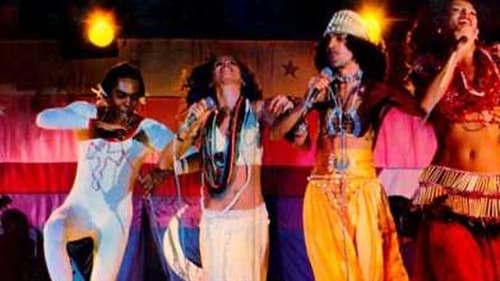
Self
The film records the commemorative tour of the ten years of the career of the Bahia singers Caetano Veloso, Gilberto Gil, Maria Bethânia and Gal Costa, who formed the group with the name of Doces Bárbaros (Sweet Barbarians), at the suggestion of Bethânia. Conceived to present the shows of the live album that would be released (Doces Bárbaros - Live), the documentary changed of tone when registering the arrest and judgment of Gilberto Gil and of a companion by possession of drugs. Gil was forced to go to a detox clinic, and only went out to participate in the programmed shows.

Self
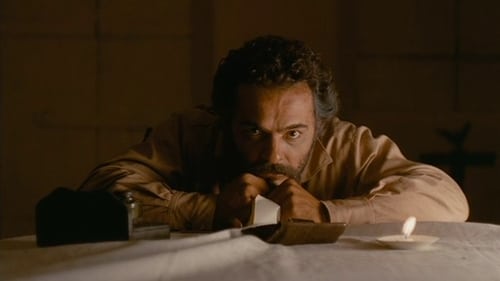
Original Music Composer
The story of Paulo Honório, a poor ploughman who becomes a rich farmer. Obsessed by his desire to get even richer, he doesn't pay much attention to his wife, Madalena, a teacher who reacts against his tyrannical ways.

Demiurgo
A colorful feature film that mixes exile with the figure of the poet Rimbaud and the feminist revolution. "It's super-intellectual. A fable-musical-philosophical-chanchada", Mautner says. He also affirms that the work focuses a lot on the longing for Brazil, on the will that the exiled had to return to their homeland. The idea came from conversations between the musician and his old father, "always talking about the pre-Socratics", he recalls. Glauber Rocha states that "The Demiurge" is the best film "of" and "about" exile.
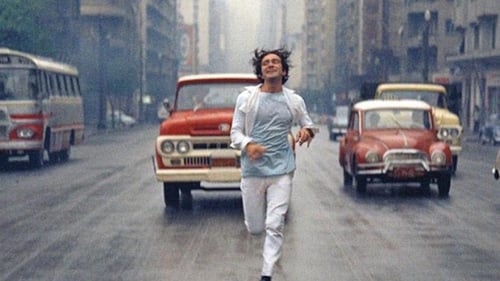
An allegory about Brazil's history and the struggle for power since the 1930 Revolution until the advent of the TV.

Self
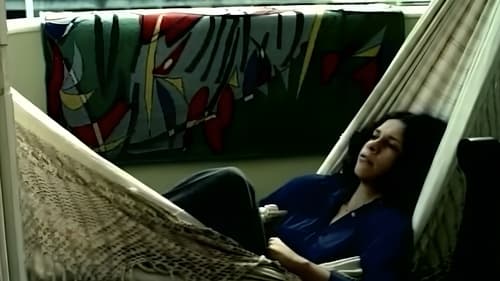
Original Music Composer
Gal Costa in her privacy. Unkempt hair, colorful clothes, many necklaces and rings, she and the streets of downtown Rio. She laughs a lot, gestures and sings. Rio's landscapes such as Lage Park, a quiet place in the neighborhood of Gávea, an active factory.

Self
Through folklore manifestations and diverse artistic expressions, the film is a document that exalts and honors the Bahian culture.

Songs
A short film produced between September and October of 1969, during the course of the Brazilian military dictatorship. It's authorship remained anonymous for a long time and the precariousness of the production was due because of its clandestinity. The film is a collage of images of popular repression, ruling power violence and its people resistance around the world.
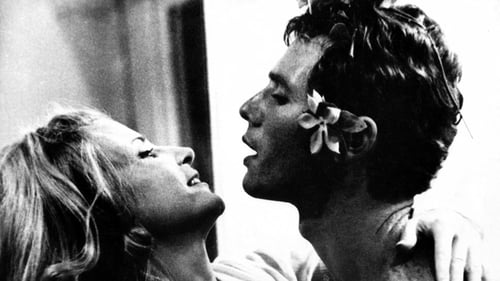
Original Music Composer
Marquinhos is in his early 20s and lives in Copacabana with his petits bourgeois parents and older brother. He doesn't have a job, he doesn't go to school, he just lives on the spur of the moment, watches TV, plays soccer on the beach by day and goes out with his mates by night. He meets Irene, a 40 year-old woman and they have a love affair that is going to change his life - for a while.

Music

Original Music Composer
In the village of Leva-e-Traz, the discovery of a oil field is responsible for a mass evasion of the townspeople. Left are the old and incapable for the extraction job. When the local priest announces he, too, is leaving the town, Satan emerge thrilled with the chance of overtaking the place.
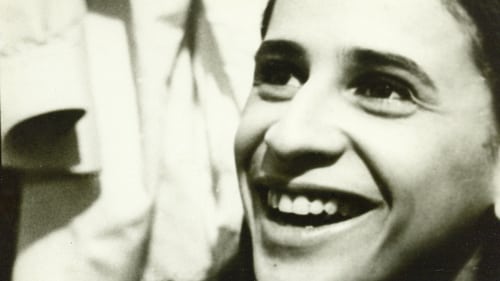
Self
Documentary about Maria Bethânia, at the very beginning of her career as a singer, when she arrived in Rio da Bahia to replace Nara Leão in the show Opinião. Bethânia's appearance, at that time in southern Rio, was a cultural shock that shook the city. The film also contains scenes of her daily life and meetings with other musicians.
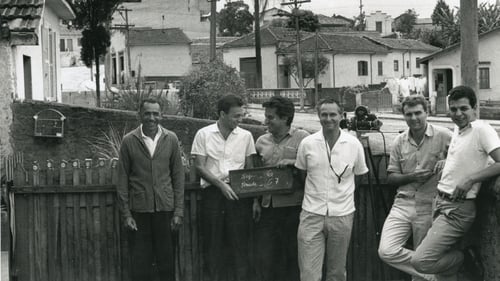
Original Music Composer
Viramundo shows the saga of the northeastern migrants that arrive in São Paulo, beginning with a train arriving and ending with a train leaving São Paulo in a cycle repeated every day. Viramundo's aim was to question why the military coup d'état in Brazil happened without any popular resistance or revolution or reaction of the society.



























































